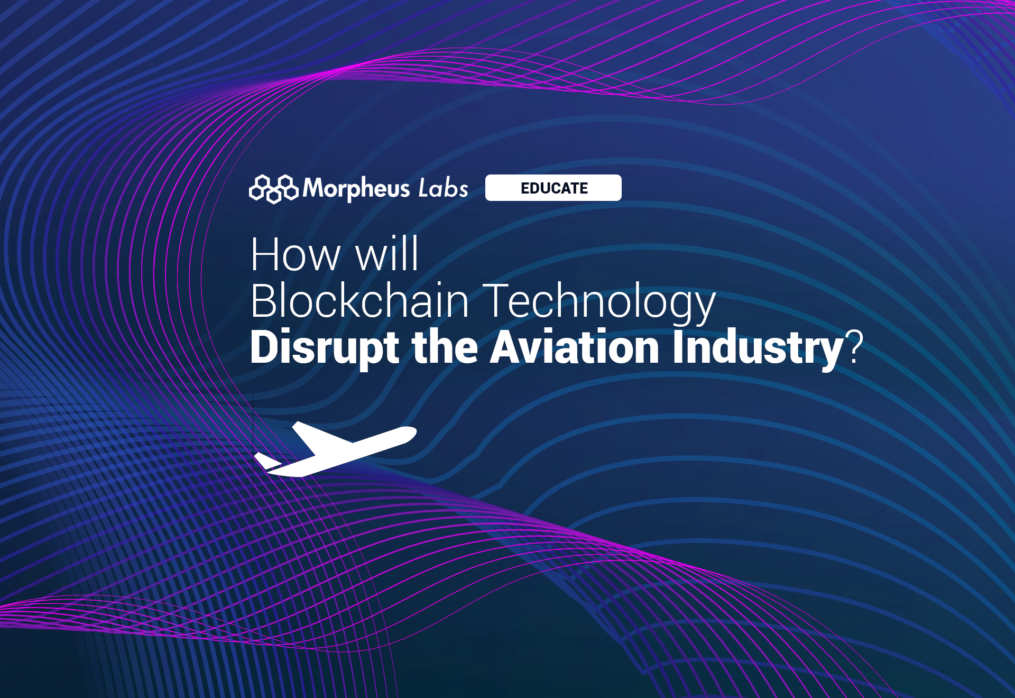News blog
labore et dolore magna eiusmod
consectetur adipiscing elit, sed do eiusmod tempor incididunt ut labore et dolore magna aliqua. Ut enim ad minim veniam, quis nostrud exercitation ullamco laboris nisi ut aliquip ex ea commodo consequat risus Ut mattis

How will Blockchain Technology disrupt the Aviation Industry?
Flying, holiday-escapes – something we all (majority of us anyway) miss in 2020. Due to the recent pandemic, almost everything came to a screeching halt and aviation, among the largest industries globally, came to a spectacular virtual standstill. You may be thinking – what has blockchain technology has to do with this industry?
This is part I of a 2-part series on how Blockchain can disrupt the aviation industry, the benefits it can bring to the table, how it can be implemented and the challenges it faces from existing forces.
Aviation has been around for many decades and you may be forgiven to think that this industry is pretty much regulated and straight-forward as it is dominated by only 5 major manufacturers – Boeing, Airbus, Bombardier, Embraer and Tupolev. The truth is far from it. Airlines manufacturers and it’s ancillary parts manufacturers only produce the end-product to the many customers around the world. After this point, the after-market, repairs, maintenance, mercenary parts resellers (MRO), etc are free-for-all. There is no dominant regulatory, “market-rate” for companies to cross-check.
In layman terms, this industry is clueless (or they know but have no real solution) about how much the maintenance of their planes are costing them. Blockchain technology in the aviation industry can bring about tangible benefits such as increasing the value of their assets, increasing productivity in their maintenance of their planes. A study by one of the four (4) major accountancy firm globally has recently estimated that blockchain implementation could increase aviation’s industry revenue by around 4% (~$40 billion) and save cost of around 5% (~$3.5 billion) annually.
Tangible benefits
Besides the obvious beneficiaries – Airline carriers, cargo operators, the aviation ecosystem also stands to reap the benefits. This includes maintenance companies, software market solutions like air-traffic tracking solutions and more.
Benchmarking
Aircrafts has millions of several small components and till today, majority of companies are still logging maintenance records, parts replacements, etc by hand. They are very seldom logged onto a centralized computerized system. Even if companies have their own “centralized software”, it is mainly for their usage only. Information is not widely shared between the various players in this industry may be competitors or that it is not in their (business) interest.
Blockchain technology would enable these data to be logged, tracked and controlled (which players get access to receptive data). Even the most minute parts would be provided with a real-time digital ID, logging in when it was updated, replaced, whom was it replaced by, to the location of where it was being carried out. This means that even if the plane was to be sold off to another company at the end of the lease, the parties involved would know who serviced the plane at which locations, the reason why, what parts were involved.
Efficient cost elimination
Having these valuable data would eliminate unnecessary costs such as when testing a parts airworthiness. This process is time consuming as the parts need to be removed, investigated, tested, refitted. These cost money and not to mention, the aircraft has to be on the ground for a longer period of time, meaning higher lost revenue opportunity for the company.
Blockchain technology also helps to reduce expensive middle-men, MRO provider fees. Having almost instant record availability when sourcing for important parts or repairs would enable companies to compare and order parts it requires directly or at more well-informed rates.
Refined routines
Modern aeroplanes today are safer thanks to constant developments and safety mandates. This also means they are having less routine trips to the maintenance but increased time spent when a fault is detected. Blockchain technology would streamline maintenance, leverage on data analysis, schedule predictive maintenance. This allows the aircraft operators to plan ahead, reduce potential aircraft downtime (through regular shorter maintenance), saving significant costs.
Not to mention that it is also safer. When there is a need for urgent identification for whatsoever reason, blockchain technology would allow accurate data on the affected part to be retrieved at a moment’s notice.
Improved experience
The overall experience satisfaction may also rise. With improved data and analysis, aircraft companies are able to understand when repairs are to be carried out, what parts are required. Maintenance companies and parts manufacturers would know what the airline requires by when and to where it is needed.
Less time would be spent on unnecessary costs due to ill-informed predictions, redundant maintenance, expensive middle-men and MROs.
Increased value
Besides the cost saving aspects of having blockchain technology implemented, it also adds value to airlines assets. Aircraft are very expensive vehicles and everyone understands that. Airlines today attract customers by having the youngest and most-advanced technology aircrafts in their inventory. But what happens to their older aircrafts? They either sell them off or lease it out to other airlines.
As covered earlier, blockchain technology would allow an airline company to have regular well-informed maintenance routines while saving costs. This increases the confidence of the potential buyer / lessor that the aircraft they are viewing has been maintained to the highest standard. This gives the airline company a business advantage as they (potential buyer / lessor) would be willing to pay a slight premium for a well-maintained aircraft as opposed to one where records are harder to verify or ascertain.
Summary
In this part, we see some of the benefits that Blockchain technology can bring to the aviation industry. As with other industries, there are many hurdles and challenges that have to be overcome before companies can reap the full benefits of adapting blockchain technology. In the next part, we will look at real-life challenges that companies will face when adopting and how it can kick-start the process.
About Morpheus Labs
Morpheus Labs is a leader in Blockchain-Platform-As-A-Service (BPaaS), offering mission-critical tools, infrastructure, various blockchain protocols, and blockchain use case references for enterprises and developers to build, experiment and manage their own applications effortlessly at minimal cost and time. Armed with relevant capabilities, the platform offers a multitude of intuitive solutions that enables developers and enterprises alike to take advantage of its platform to build effective solutions for various use cases.
Morpheus Labs’ purpose is to make it easier and cheaper for people to develop blockchain solutions; empowering businesses to solve the unknowns and complexities in blockchain technology.
Be a part of our community! Join our official group chat on Telegram: https://t.me/morpheuslabs
(Check out our Community Telegram Guidelines.)
Connect with us
LinkedIn | Twitter | Telegram | Facebook | Youtube | Github | Reddit | CrunchBase | Website | Gitter
For more information about Morpheus Labs, kindly refer to our main site at https://morpheuslabs.io/old/ or via email at info@23.108.103.25



















